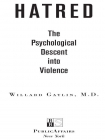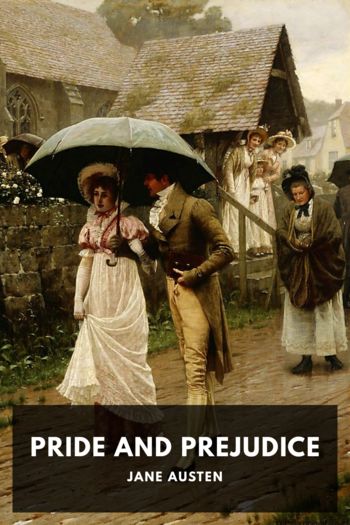Hatred by Willard Gaylin (best manga ereader txt) 📗

- Author: Willard Gaylin
Book online «Hatred by Willard Gaylin (best manga ereader txt) 📗». Author Willard Gaylin
I am not denying the tragedy inherent in the life of the bomber. I admit to being touched by the frustration, the poverty, and the deprivation of the Palestinian refugees. But this story, occurring only seven months after the World Trade Center bombing, indicates the peculiar distortion that remoteness allows, the romanticizing made possible when identification is mitigated by distance. Can anyone imagine the New York Times running a similar article with the pictures of Muhammed Atta side by side with a New York City fireman of his age and general appearance? Would the reporter do an extended comparison of their youth and backgrounds, and then describe them as “two young men drawn together by different trajectories,” thereby erasing all distinctions between murderer and victim? We want the fireman to be a tragic hero; we do not want to hear of his foibles and imperfections. Muhammed Atta is the identified villain; we are not prepared to hear that he loved dogs and was kind to his mother.
All of us are more capable of distancing ourselves from hatred when we are not bound to the victims in a community of identity. Even in the wake of the World Trade Center bombing, in a city like New York, with great affinities to the Israelis, we do not truly identify with them. They are not of us and we will not “feel their pain” for long. We set different standards for Israeli activities of retribution or self-defense in an assault on the Palestinians than we do for our own pursuit of Al Qaeda in Afghanistan.
We are reluctant—unwilling—to acknowledge and condemn hatred, to confront evil head-on. Evil is the Medusa’s head. To see it directly might turn us to stone. So we “rationalize” it. We make it comfortable, by explaining it in everyday terms of sociology and psychology. We look to politics and economics to explain why and how hate-driven acts occur, forgetting that hatred is ultimately a pathological mental mind-set. In such a way we trivialize the acts of terror and in the process romanticize the terrorists, supplying them with ready defenses.
In an article in the Nation magazine, Patricia J. Williams bitterly anticipated the eventual distancing from evil in relation to a once-notorious hate crime, the murder of Matthew Shepard, a twenty-one-year-old man who, on October 6, 1998, in Laramie, Wyoming, was severely beaten and then bound to a fence and left to die. Apparently Matthew Shepard was viciously killed only because he was gay.
Williams wrote:
So here we are, at two minutes after the funeral of Matthew Shepard. The media are awash in earnest condemnation. But mark my words, after three and a half minutes, someone will casually suggest that hatred is just a matter of “ignorance” and “stupidity” and there’s no sense in analyzing it too much, because the killers were “just a couple of rednecks.” If you’re still talking about Matthew Shepard after four minutes, you will be urged to shut up and get on with the healing process. After five minutes, you’ll be accused of “magnifying” an isolated misfortune. After six minutes, you will face charges of “exploiting for personal profit what has already been laid to rest.”4
Williams is arguing against a moral relativism that has been pervasive in modern culture. Moral relativism denies absolute evil. It abandons strict moral rules, judging behavior in terms of motivation and life history. As a result, we are reluctant to condemn a crime or a criminal. Instead we attempt to “understand” and “treat” the criminal, as we are reluctant to commit what the eminent psychiatrist, Karl Menninger, called “the crime of punishment” in the 1950s.5 This moral relativism has been supported by a psychoanalytic view of behavior that perceives all present-day behavior as the inevitable—and therefore nonculpable—product of our developmental past. We commit abominable acts because we were conditioned to do so. Since we have no choice, it is not our fault. This reasoning is an imaginative and useful way of treating mental illness in a health setting. I earn my living that way. But it is no way to run a country.
Psychoanalysis erased the formerly rigid distinctions between normal and sick behavior and expanded the definition of mental illness beyond anything imaginable in the nineteenth century. The patients I see in my practice would never have been remotely identified as having mental health problems a century ago. And that is fine. Fine, that is, in a therapeutic relationship, but not in the world of morality and justice.
Philip Rieff brilliantly labeled this transformation of our culture as The Triumph of the Therapeutic.6 Illness replaced evil. Nothing was bad, only sick. We became one big, happy therapeutic community. The negative implications for the law were significant when it became clear that if all aberrant behavior were sick, there would be no longer any room for judgment. Therefore, both penance and punishment were outdated. As it turned out, the therapeutic approach to crime and evil was a prelude to disaster, even for the criminals themselves. By calling them sick, we could keep them incarcerated well beyond the sentencing limits that would have been tolerated by law, all in the name of treatment.
One would have thought that the one community that would resist the conflation of evil into sickness would have been the world of theology. Yet the scandals that erupted in 2002 and plagued the Catholic Church stemmed as much from an abandonment of its moral heritage of distinguishing between good and evil, sinner and saint, and an adoption of the more fashionable language of psychoanalysis, where all aberrant behavior is a sickness





Comments (0)